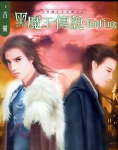wgolding.lordoftheflies-第3部分
按键盘上方向键 ← 或 → 可快速上下翻页,按键盘上的 Enter 键可回到本书目录页,按键盘上方向键 ↑ 可回到本页顶部!
————未阅读完?加入书签已便下次继续阅读!
in their way undergoes a metamorphosis which brings it into accord with the natural images of their worship。 When Pentheus is seen he is taken for a lion9 and; led by Agave; the blind victims of the god tear him limb from limb。 The final humiliation of those who deny the godhead is to render them conscious of their crimes and to cast them out from their homeland as guilt…stricken exiles and wanderers upon the earth。
8。On several occasions Golding has stated that he has read deeply in Greek literature and history during the past twenty years。
For most modern readers the chief obstacle in the way of proper understanding of The Bacchae; and therefore Golding's use of it; is the popular notion that Dionysus is nothing more than a charming god of wine。 This image descends from 〃the Alexandrines; and above all the Romans… with their tidy functionalism and their cheerful obtuseness in all matters of the spirit…who departmentalized Dionysus as 'jolly Bacchus' 。 。 。 with his riotous crew of nymphs and satyrs。 As such he was taken over from the Romans by Renaissance painters and poets; and it was they in turn who shaped the image in which the modern world pictures him。〃 In reality the god was more important and 〃much more dangerous〃: he was 〃the principle of animal life 。 。 。 the hunted and the hunter…the unrestrained potency which man envies in the beasts and seeks to assimilate。〃 Thus the intention and chief effect of the bacchanal was 〃to liberate the instinctive life in man from the bondage imposed upon it by reason and social custom。 。。。〃 In his play Euripides also suggests 〃a further effect; a merging of the individual consciousness in a group consciousness' so that the participant is 〃at one not only with the Master of Life but his fellow…worshipers 。 。 。 and with the life of the earth。〃10 Dionysus was worshiped in various animal incarnations (snake; bull; lion; boar); whatever form was appropriate to place; and all of these were incarnations of the impulses he evoked in his worshipers。 In The Bacchae a leader of the bacchanal summons him with the incantation; 〃O God; Beast; Mystery; e!〃 11 Agave's attack upon the lion〃 (her own son) conforms to the codes of Dionysic ritual: like other gods; this one is slain and devoured; his devotees sustained by his flesh and blood。 The terrible error of the bacchantes is a punishment brought upon the land by the lord of beasts: 〃To resist Dionysus is to repress the elemental in one's own nature; the punishment is the sudden collapse of the inward dykes when the elemental breaks through perforce and civilization vanishes。〃12
9。 In Ovid's Metamorphoses the bacchantes see Pentheus in the form of a boar。
10。 E。 R。 Dodds; Euripides Bacchae; Second Edition (Oxford: The Clarendon Press; 1960); p。 xii and p。 xx。 Dodds also finds evidence that some Dionysian rites called for human sacrifice。
11。 From the verse translation by Gilbert Murray。
This same humiliation falls upon the innocents of Lord of the Flies。 In their childish pride they attempt to impose an order or pattern upon the vital chaos of their own nature; and so they mit the error and 〃sin〃 of Pentheus; the 〃man of many sorrows。〃 The penalties; as in the play; are bloodshed; guilt; utter defeat of reason。 Finally; they stand before the officer; 〃a semicircle of little boys; their bodies streaked with colored clay; sharp sticks in their hands。〃13 Facing that purblind mander (with his revolver and peaked cap); Ralph cries 〃for the end of innocence; the darkness of man's heart〃 (186…87); and the tribe of vicious hunters joins him in spontaneous choral lament But even Ralph could not trace the arc of their descent; could not explain why it's no go; why things are as they are; for in the course of events he was at times among the hunters; one of them; and he grieves in part for the appalling ambiguities he has discovered in his own nature。 He remembers those strange; interims of blindness and despair when a 〃shutter〃 clicked down over his mind and left him at the mercy of his own dark heart。 In Ralph's experience; then; the essence of the fable is spelled out: he suffers the dialectic we must all endure; and his failure to resolve it as we would wish demonstrates the limitations which have always plagued the species。
In the first hours on the island Ralph sports untroubled in the twilight of childhood and innocence; but after he sounds the conch he must confront the forces he has summoned to the granite platform beside the sunny lagoon。 During that first assembly he seems to arbitrate with the grace of a young god (his natural bearing is dignified; princely) and; for the time being; a balance is maintained。 The difficulties begin with the dream…revelation of the child distinguished by the birthmark。 The boy tells of a snakelike monster prowling the woods by night; and at this moment the seed of fear is planted。 Out of it will grow the mythic beast destined to bee lord of the island。 Rumors of his presence grow。 There is a plague of haunting dreams…the first symptom of the irrational fear which is 〃mankind's essential illness。〃
12。Dodds; p。xvi
13。 Lord of the Flies; p。 185。 All quotations are taken from the edition contained in this volume。 Subsequent page references will appear in parentheses。
In the chapter called 〃Beast from Water〃 the parliamentary debate bees a blatant allegory in which each spokesman caricatures the position he defends。 Piggy (the voice of reason) leads with the statement that life is scientific;〃 adds the usual Utopian promises (〃when the war's over they'll be traveling to Mars and back〃); and his assurance that such things will e to pass if only we control the senseless conflicts that impede progress。 He is met with laughter and jeers (the crude multitude); and at this juncture a littlun interrupts to declare that the beast (ubiquitous evil) es out of the sea。 Maurice interjects to voice the doubt which curses them all: 〃I don't believe in the beast of course。 As Piggy says; life's scientific; but we don't know; do we? Not certainly 。 。 。〃 (81)。 Then Simon (the inarticulate seer) rises to utter the truth in garbled; ineffective phrases: there is a beast; but 〃it's only us。〃 As always; his saving words are misunderstood; and the prophet shrinks away in confusion。 Amid speculation that he means some kind of ghost; there is a silent show of hands for ghosts as Piggy breaks in with angry rhetorical questions: 〃What are we? Humans? Or animals? Or savages?〃 (84)。 Taking his cue; Jack (savagery in excelsis) leaps to his feet and leads all but the 〃three blind mice〃 (Ralph; Piggy; Simon) into a mad jig of release down the darkening beach。 The parliamentarians naively contrast their failure with the supposed efficiency of adults; and Ralph; in despair; asks for a sign from that ruined world。
In 〃Beast from Air〃 the sign; a dead man in a parachute; is sent down from the grownups; and the collapse foreshadowed in the allegorical parliament es on with surprising speed。 Ralph himself looks into the face of the enthroned tyrant on the mountain; and from that moment his young intelligence is crippled by fear。 He confirms the reality of the beast and his confession of weakness insures Jack's spectacular rise to power。 Yet the ease with which Jack establishes his Dionysian order is hardly unaccountable。 In its very first appearance the black…caped choir; vaguely evil in its military esprit; emerged ominously from a mirage and marched down upon the minority forces assembled on the platform。 Except for Simon; pressed into service and out of step with the mon rhythm; the choir is posed of servitors bound by the ritual and mystery of group consciousness。 They share in that munion; and there is no real 〃conversion〃 or transfer of allegiance from good to evil when the chorus; ostensibly Christian; bees the tribe of hunters。 The lord they serve inhabits their own being。 If they turn with relief from the burdens of the platform; it is because they cannot transcend the limitations of their own nature。 Even the parliamentary pool of intelligence must fail in the attempt to explain all that manifests itself in our turbulent hearts; and the assertion that life is ordered; 〃scientific;〃 often app


![[LOL]爱的双排封面](http://www.9wshu.net/cover/12/12832.jpg)



